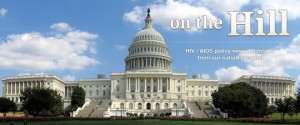 The November 2012 election yielded a decisive victory for Senate Democrats. House Democrats, while entering the 113th Congress with a handful more seats than the previous term, will not shore up control of the chamber from Republicans. The continued control of the House and the Senate by opposing parties presents considerable challenge. The potential for repeated gridlock comes at a time when the legislative priorities of the HIV/AIDS community include reauthorization of the Ryan White Program in 2013, the reemergence of comprehensive immigration reform as a Congressional priority after the historic participation of minority and immigrant communities in the 2012 election, and the Violence Against Women Act remains unacted upon since its 2012 reauthorization.
The November 2012 election yielded a decisive victory for Senate Democrats. House Democrats, while entering the 113th Congress with a handful more seats than the previous term, will not shore up control of the chamber from Republicans. The continued control of the House and the Senate by opposing parties presents considerable challenge. The potential for repeated gridlock comes at a time when the legislative priorities of the HIV/AIDS community include reauthorization of the Ryan White Program in 2013, the reemergence of comprehensive immigration reform as a Congressional priority after the historic participation of minority and immigrant communities in the 2012 election, and the Violence Against Women Act remains unacted upon since its 2012 reauthorization.
National Minority AIDS Council (NMAC) remains committed to a broad range of legislative issues that affect the quality of life for people living with HIV/AIDS (PLWHA) in America, as well as individuals at elevated risk for HIV infection due to race, ethnicity, sexual orientation, gender, geography, socioeconomic standing, age, and citizenship status. NMAC is similarly committed to advocating for robust funding to relevant government agencies with programs that serve the diverse prevention, care, treatment, research, and service related priorities of PLWHA and those at heightened vulnerability to new HIV infection. NMAC will work to ensure that the resilience of minority communities is acknowledged, protected, and supported in federal legislation.
Click here to read our 2013 Legislative Priorities in full.
REGULATORY AGENDA FOR SECOND TERM OBAMA ADMINISTRATION
President Obama will effectively face the same Congress and an even more closely divided nation in the year ahead, as he tackles drawn out fiscal battles and the longer term issues of tax reform and a delayed fiscal year 2014 budget process. For at least two years, Obama will engage a Congress similar in makeup to the last two years, with which he battled constantly over his legislative priorities. The continued control of the House and the Senate by opposing parties presents the possibility for repeated legislative gridlock on Capitol Hill and, in turn, underscores the importance of the HIV/AIDS community collaborating with the Obama administration to swiftly enact administrative reforms that will improve access to prevention and care services for people living with and vulnerable to HIV.
Click here to read our 2013 Administrative Priorities in full.